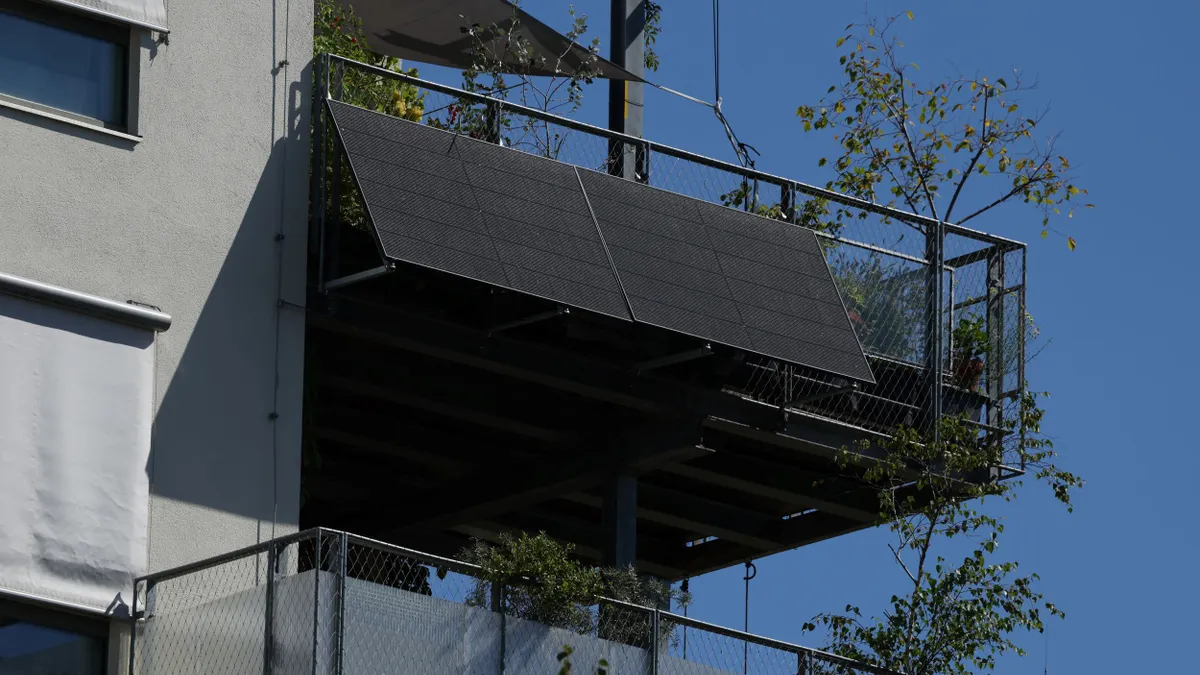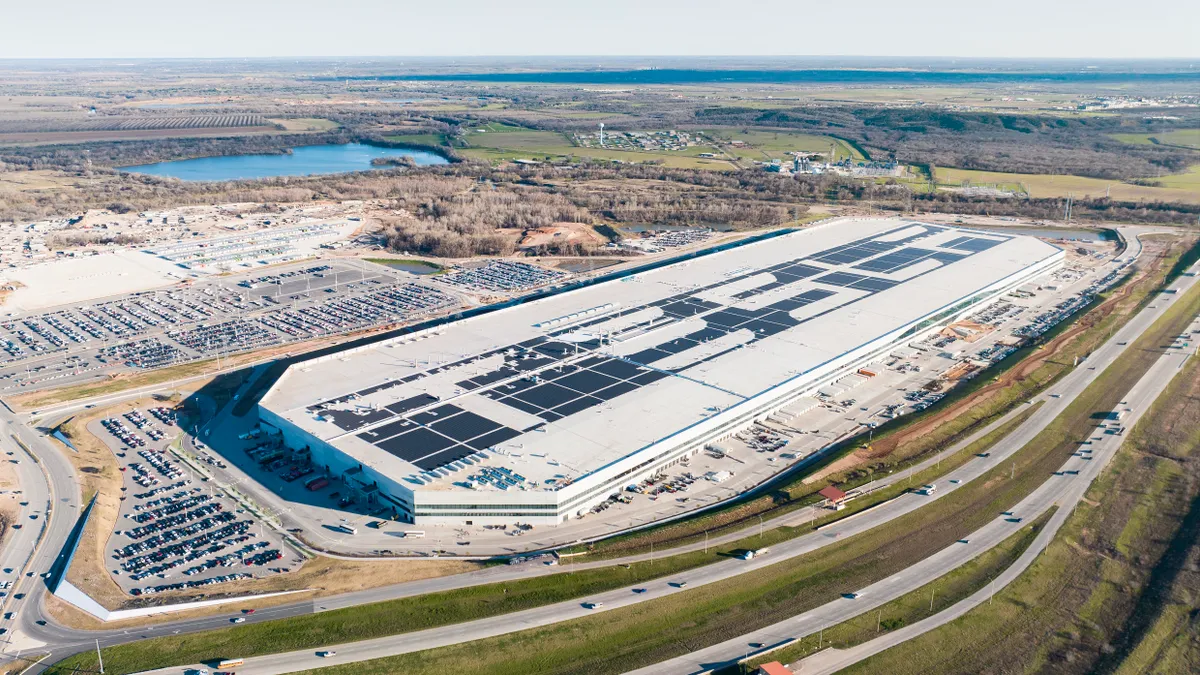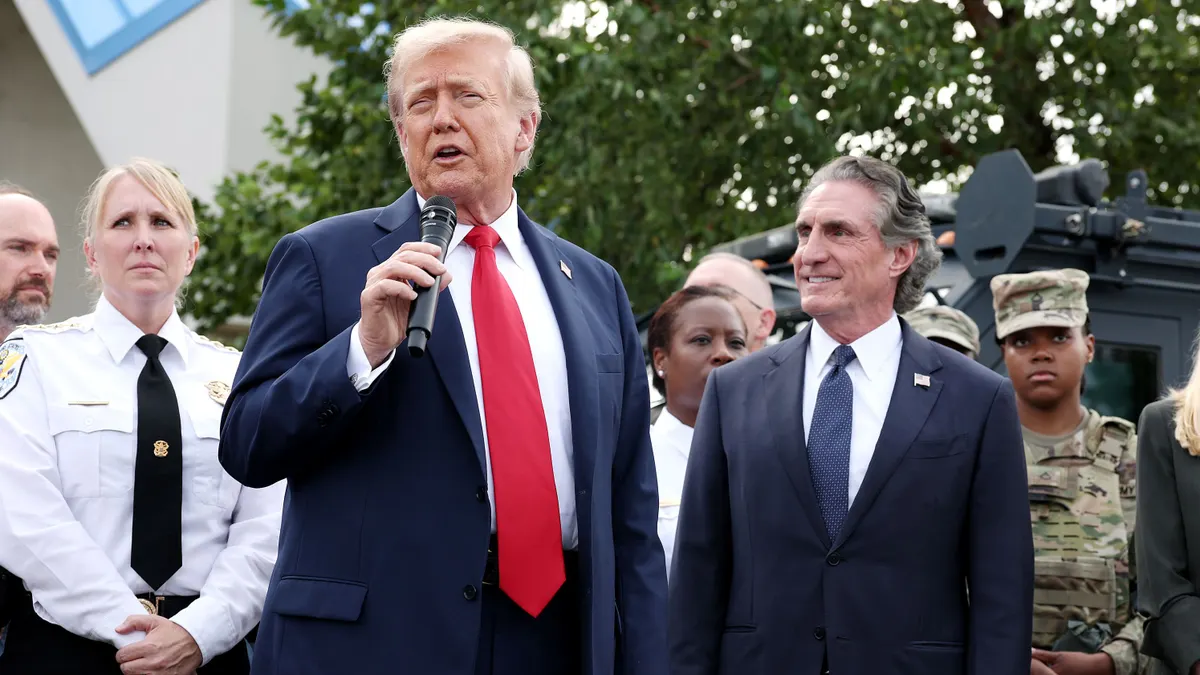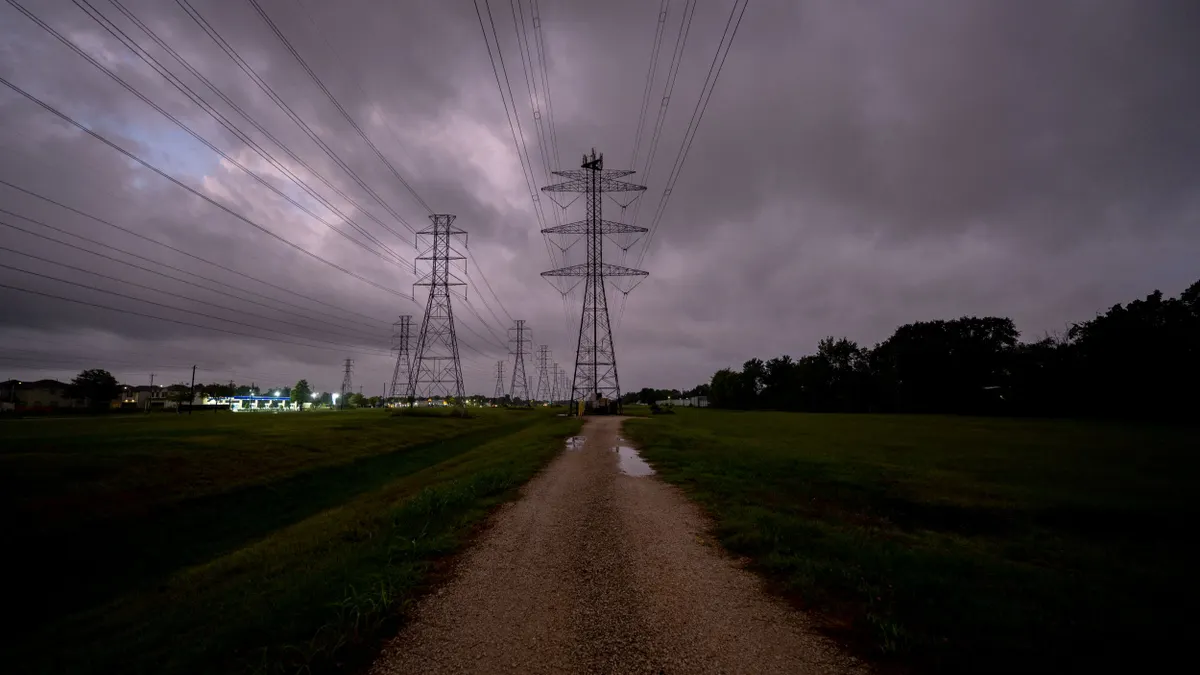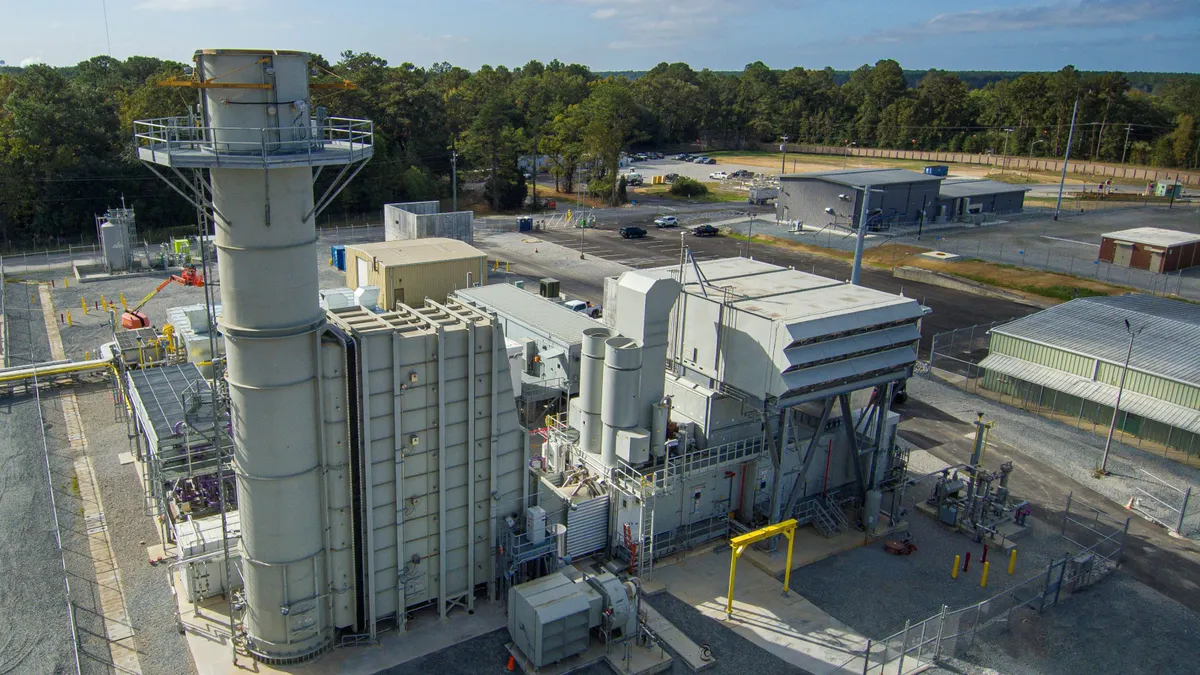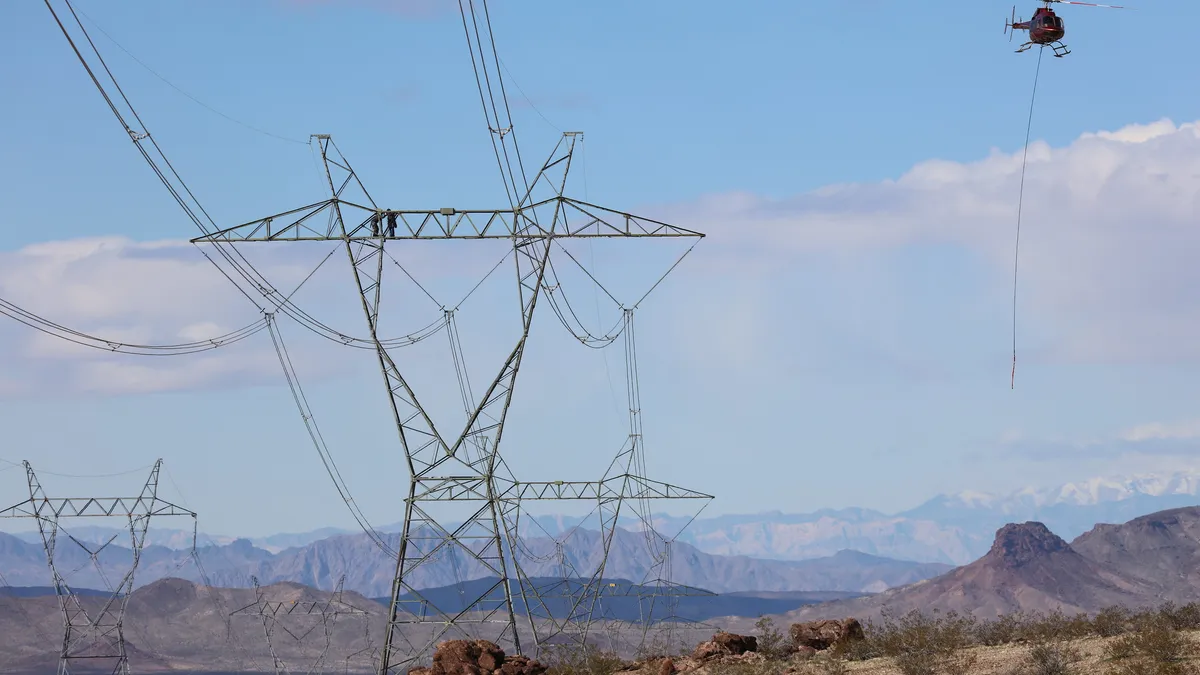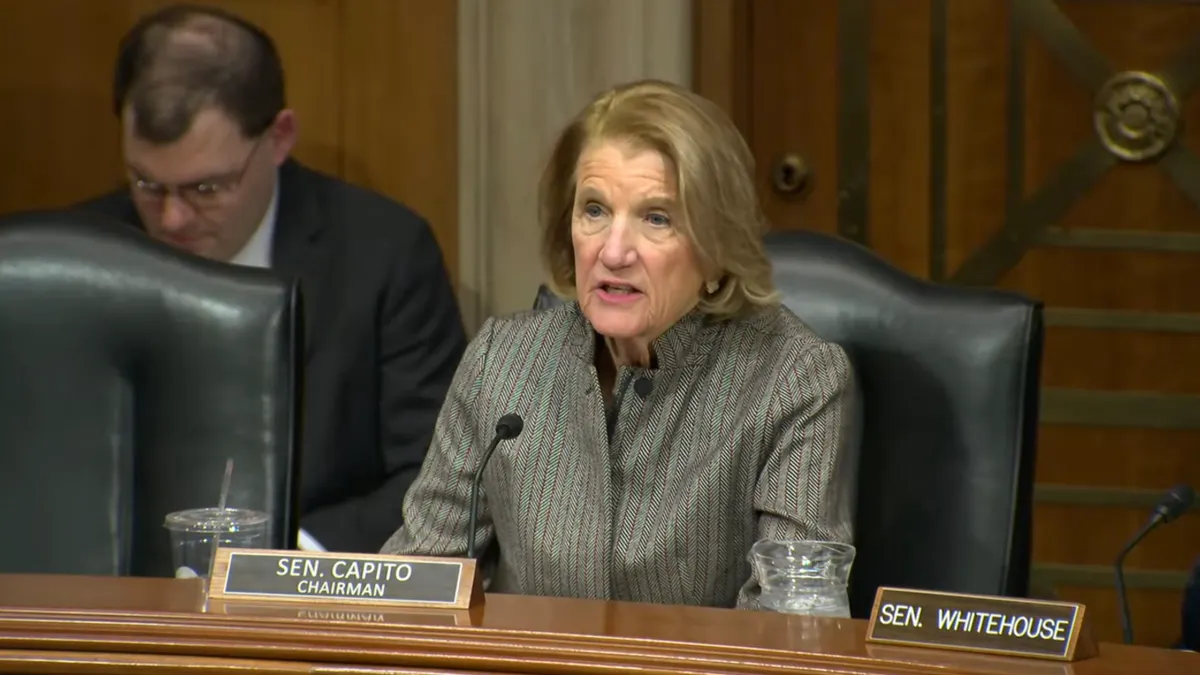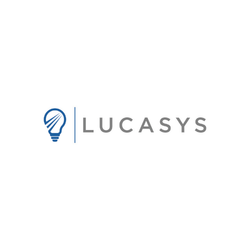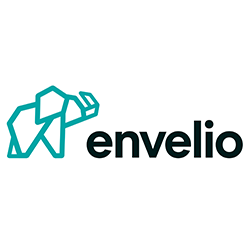A residential solar pilot program in Montgomery County, Maryland, has outpaced expectations by booking more than $3 million in loans since November, despite a declining residential solar market and ongoing uncertainty about the future of federal solar tax credits.
The program is a partnership between fintech platform OneEthos and the Montgomery County Green Bank, facilitated by OneEthos’s affiliate Climate First Bank. It launched in November, with a goal of booking around 40 to 50 loans during its first year.
As of March, the program had booked 40 loans, and by the end of May that amount had doubled to 83 — a total of $3,062,224 in loans, program leaders shared with Utility Dive.
“In just a few months, we saw enough loan demand to meet our entire annual budget for the program,” said Rokas Beresniovas, MCGB’s senior director of commercial business and climate finance.
The program’s success comes amid lowered demand for residential solar nationwide. The market “experienced its first annual contraction since 2017” in 2024, declining by 31% from 2023, according to a March Solar Market Insight Report from the Solar Energy Industries Association and Wood Mackenzie.
Residential solar companies have been struggling, and on Sunday, Sunnova became the latest of them to file for bankruptcy. In addition, the House’s May budget bill proposed winding down the Inflation Reduction Act’s 30% residential solar tax credit early, limiting its applicability to projects placed in service by the end of this year.
Marcio deOliveira, CEO of OneEthos, said he “would not necessarily attribute the success or growth” of the program to customers trying to get ahead of political uncertainties. “However, we do predict that going forward, uncertainty and changes would accelerate the growth,” he said. “As we see the possibility of fewer incentives at the federal level, green banks become even more important — to step up, and provide incentives and support at the state and the regional level, to continue programs like this.”
deOliveira attributes the surprising level of interest in the program partially to the structure of what’s being offered — a 30-year loan without dealer fees. The average term for a solar loan is from 15 to 20 years, with some lenders offering 25-year loans. Dealer fees often range from 15% to 25% of the project's cost.
While MCGB is “focused on the commercial sector, and cannot directly lend to the consumers,” it can provide enhancements like subsidies in partnership with entities like OneEthos and Climate First Bank, said Beresniovas. MCGB is subsidizing the loan’s interest payment for the first ten years to provide a rate of 0% for qualifying homeowners in low-income areas and 4.99% for all other households across the county. After the first 10 years, all borrowers are responsible for a 7.99% interest rate.
“You have an incentive to pay it off in ten years to get the lower interest rate,” said Cindy Peña, the communications manager for the Montgomery County Department of Environmental Protection, who recently secured a loan through the program for solar, new roofing, an electrical panel upgrade and an electric vehicle charging station. “My goal is to pay it off in ten years. I want to get it off my plate.”
Peña said she lives close enough to the Washington, D.C line to qualify for the district’s solar renewable energy credits, which pay significantly more than Maryland’s.
“My neighbors, many of them have solar because [of that],” she said. “In a nice month, you can get $400 a month from D.C. … So I'm looking at that money to help pay off my loan, along with what I would be saving on Pepco.”
Peña said she still hopes to qualify for the federal residential solar energy credit. Her decision to move forward with a solar loan was made after the election, but “before anybody really knew what was going to be happening at the federal level.”
“I'm hopeful,” she said. “We wanted to get that federal rebate — I never thought it would be in jeopardy. But now, it could be.”
Peña said her husband had been wanting to install solar for some time, but she was first swayed to the idea in October when she spoke to the owner of a company that installs electric vehicle charging stations, who told her that Pepco rates would be rising soon.
As of June 1, the average residential Pepco customer “using 614 kWh per month will see a 17.7% ($20.81) increase in their total monthly bill,” according to the D.C. Public Service Commission.
The DCPSC cited several market conditions for the bill increase: tightened supply from local power plant retirements; new reliability requirements; increased demand from new data centers; and increased renewable energy requirements in the region.
In other areas of Maryland, Baltimore Gas and Electric customers have also seen their energy bills increase. Beresniovas said he anticipates that rising energy prices will “contribute to people considering solar, especially here in Maryland.”
Following its recent success, the partnership is looking to expand beyond solar to include energy efficiency upgrades, Beresniovas said.
“A lot of people install solar panels, but their homes aren't actually energy efficient, so they're still wasting energy through poor insulation, outdated HVAC, old leaky windows,” he said. “We're looking forward to expanding this program in the next couple of months.”
Correction: We have updated this story to clarify how Montgomery County Green Bank is subsidizing the loans.







